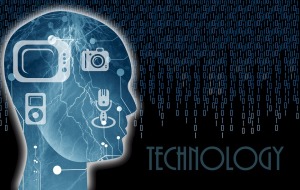Tags
augmented reality, coldplay, ECI 830, eci830, edtech, education, education technology, fear of missing out, loneliness, look up, PLN, plug in, teacher, unplug
“Look up“.
Great advice for some, but not all. I think in some cases, we need to try to reflect on the value of looking down… and what looking down allows us to do – connect, answer, and learn. Yes, we can go to a concert and hear musicians tell us to unplug and live in the moment, and we need to, but what about getting a video of Chris Martin singing “Fix You” for your friend who couldn’t be there because they were sick?
Some moments don’t need a camera; there is value in appreciating things without a digital record… But, like every other debate we’ve had, we need balance, moderation, and an open mind. Is taking a video of a child’s first steps also “not living in the moment”? Or is it an opportunity to reflect and relive the moment many years later? Humanity is evolving, constantly rewiring the hardware of our brains, and with this includes modern connectedness and socialization, which occurs by looking down and utilizing our technology and devices. We are comfortable with looking down when it helps us learn with PLNs or to help facilitate learning and friendships, but are quick to antagonize it when people don’t appreciate moments the way we might want them to. There is a challenge to begin to recognize that who we are today involves a link between offline to online life. This is echoed by the concept of augmented reality. As we learn about what our digital footprints are, and adjust our digital identity to improve this, we improve our IRL identity as a result… we project a better us to live up to. (But this can create pressure to please, so we need to continue to reflect and be fair to ourselves).
Optimism versus the facts against being plugged in.
“Plugging in” has been called “a way to avoid dealing with loneliness“,

Loneliness via Wikimedia Commons
but perhaps it is an opportunity to decrease boredom. Loneliness and boredom encapsulate two states of mind that are, at times, difficult to differentiate from one another. I would seek to argue that perhaps we are more engaged and stimulated than ever before, but is there a backlash to this? What is it? We are all capable of multi-tasking better than ever before, yet some evidence points to the idea that I am wrong, and simply have less attenton and focus. Having too much going on at once is imposed by tech and causes higher levels of stress… including how connected we are and the inherent expectations for shorter response times. Contrary to this, I would argue that I feel efficient when I get a lot done in a day, and am capable of getting a lot of things done thanks to technology, and have a lot of positive means of coping with the potential stress that occurs as a result. I want to be involved and I feel fulfilled when I am… or am I just afraid of missing out?
Fear of missing out is a reality for some, and some may tell you that technology is making this worse, but there is also learning to be had when struggling with this fear. Speaking from personal experience, through toddler to teenager, I have been completely wrapped up in what others are doing, and over time learned to accept the things I may be missing out on for what is more important, isn’t that what growing up is and has been for some time? Some argue that technology can be an addiction, observing others who make trips home to retrieve devices that, without them, said individuals would feel naked. I have a hard time agreeing that technology is an addiction, we have it to connect and it is something that we feel improves or is needed in our lives. How is this different than applying the argument to being addicted to our cars or other modes of transportation? It is a part of our lives that improves our lives, and the fact that I feel that I “need” it to get to work wouldn’t be considered addiction or “bordering on obsession”, so many things would therefore border on obsession. My love of hockey, teaching, cats, and my family, borders on obsession. However, the points listed above make my life better, no question about it. Does being plugged in actually make my life better?
Does being plugged in legitimately make your life better?
Does being plugged in make your students’ lives better?
If you think it doesn’t, then stay unplugged.
For me?
I am dialled in.
I am plugged in.
I am educate-in.
And I am loving life.
EC&I 830, have a great summer.
Logan Petlak












